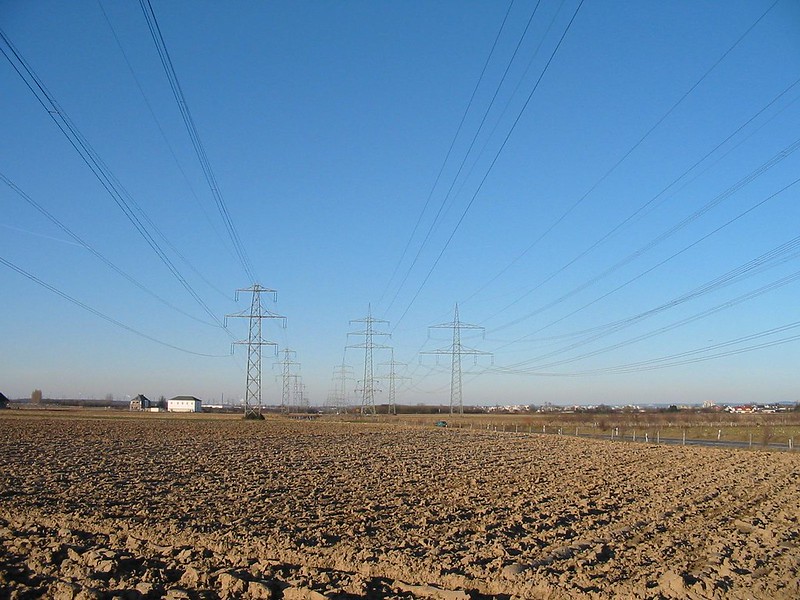This page contains automatically translated content.
Projekt KRITEX: Kritische Infrastrukturen im technischen Wandel
 Image: Thomas.
Image: Thomas.Mit rund 500.000 Euro wird das knapp zweijährige Projekt KRITEX im Programm für zivile Sicherheit vom Bundesministerium für Bildung und Forschung gefördert. Kritische Infrastrukturen, zu denen auch die Stromversorgung zählt, geraten immer stärker in den Fokus von Cyberangriffen. Durch die Energiewende, insbesondere die Dezentralisierung der Energieerzeugung sowie die zunehmende Vernetzung und Digitalisierung der Infrastruktur, wird das Versorgungsnetz immer komplexer und verwundbarer. Die Angriffsfläche steigt derart, dass bereits heute klassische IT-Sicherheit für den Schutz nicht mehr ausreicht und Regelungsbedarf besteht. Hier setzt das Projekt KRITEX an. Darin wird die Konfiguration einer skalierenden IT-Sicherheitsplattform für Betreiber Kritischer Infrastrukturen in ihrer Abhängigkeit von rechtlichen, technischen und praktischen Aspekten untersucht. Darüber hinaus werden Mechanismen zur effektiven Risikodeckelung von den Projektpartnern betrachtet.
Thomas Blumenthal, Geschäftsführer des Konsortialführers QGroup und Experte für IT-Sicherheit, freut sich über das Projekt: „Wir möchten über einen ganzheitlichen Ansatz, der rechtliche Fragen einschließt, mehr Sicherheit für Netzbetreiber schaffen und eine größtmögliche Widerstandsfähigkeit gegen Angriffe von außen realisieren.“
Ausgehend vom Sicherheitsbedarf der Infrastrukturbetreiber in der Energieversorgung werden rechtliche Regeln unter Berücksichtigung des bestehende Rechtsrahmens sowie der Regulierungsbedarf untersucht. „Wir alle – Staat, Wirtschaft, Bürgerinnen und Bürger – sind auf eine krisensichere Energieversorgung angewiesen. Das erfordert heutzutage den Einsatz sicherer und resilienter IT. Für diese gibt es Vorgaben im IT-Sicherheitsrecht und im Datenschutzrecht, die wir im Projekt fortentwickeln und für neue Formen der flexiblen Energieerzeugung konkretisieren wollen“, erklärt Prof. Gerrit Hornung. Leiter des Fachgebiet Öffentliches Recht, IT-Recht und Umweltrecht der Universität Kassel.
Im Gegensatz zu klassischen, häufig punktuellen Ansätzen der IT-Sicherheit verfolgt das Projekt einen ganzheitlichen Ansatz zur grundsätzlichen, resilienten Ausgestaltung der digitalisierten Infrastruktur (IT/OT/IoT) für Betreiber kritischer Infrastrukturen. Das Vorhaben bedient sich eines strukturierten Resilienzaufbaus von der Kernel- und Betriebssystemebene aufwärts, der von vornherein die Anpassbarkeit an rechtliche Anforderungen berücksichtigt. Der systematische Aufbau eines wirksamen, skalierenden und praktikablen Schutzes vor immer raffinierteren Angriffen soll für die Betreiber von Kritischen Infrastrukturen vereinfacht werden.
Die Untersuchungen werden beispielhaft mit Unterstützung des assoziierten Partners Städtische Werke Netz + Service GmbH durchgeführt. „Damit sind drei Mitglieder des House of Energy direkt im Projekt KRITEX involviert. Es wird zudem die Brücke zu anderen Projekten des transdisziplinären Netzwerks geschlagen", betont Prof. Peter Birkner, Geschäftsführer des House of Energy. Insbesondere soll auf die Erkenntnisse des Smart Grid LAB Hessen zurückgegriffen werden, welches ein Labor ist, in dem das intelligente Stromnetz (Smart Grid) der Zukunft aus verschiedenen Blickwickeln unter realen Bedingungen untersucht wird. Die Übertragbarkeit des KRITEX-Ansatzes auf andere Infrastrukturen ist im Projektverlauf ebenfalls ein Thema.